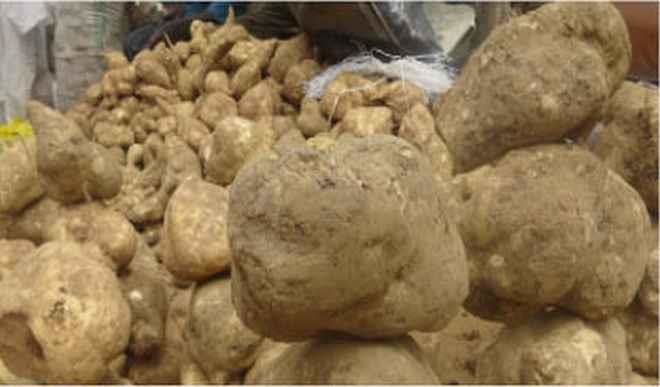Sokoto sweet potato farmers ready for mass production
Sweet potato farmers in Sokoto State say they are ready for mass production of the commodity with necessary support from the stakeholders in the agricultural sector. Many farmers in the 23 local government areas of the state are into sweet potato production but grow them mostly for local consumption. “We should be encouraged to produce […]


Sweet potato farmers in Sokoto State say they are ready for mass production of the commodity with necessary support from the stakeholders in the agricultural sector.
Many farmers in the 23 local government areas of the state are into sweet potato production but grow them mostly for local consumption.
“We should be encouraged to produce more sweet potatoes as we have the potential to be a foremost state in sweet potato production in Nigeria with adequate support,” a farmer, Malam Aliyu, said.
The farmers noted the availability of the root vegetable in almost all local government areas of the state but more prominent in Sabon Birni, Wurno, Gwadabawa, Rabah, Silame, Sokoto North and Wamakko.
The chairman Sokoto State chapter of All Farmers Association of Nigeria, Alhaji Murtala Gagada Minnanata, said lack of support from government and commercial banks contributed to low level of sweet potato production in the state.
“Farmers in the 23 local government areas of Sokoto are into sweet potato production but could not go beyond local consumption capacity,” he stated.
Minnanata said commercial and agriculture banks do not give loans to farmers without government endorsement.
At Kara market’s sweet potato depot, the chairman, Alhaji Dan Shehu, said almost on a daily basis, they received supply of about four-five truck loads of sweet potato from the various local government areas.
He said the price of a sack of sweet potato varied according to size with the biggest sack sold at between N6,500 and N7,000. He added that a truck load costs N375,000 and that each truck carried 50 sacks of the commodity.
Dan Shehu noted sweet potato can be grown during both dry and rainy seasons, adding that the market hardly experienced scarcity because there was never period of short supply or non-supply.
“Even if the Sokoto supply diminishes, we get supply from Zamfara State and Zaria, but there’s hardly scarcity,” he said.
He urged for support from government so that sweet potato farmers can access loan facilities from banks, fertilizer, water pumping machines and other inputs at subsidized rates instead of buying from the open market at exorbitant prices.
Some sweet potato consumers have also suggested that it could be used for flour production just as they noted the need to increase awareness on its nutritional value to boost demand.
“Sweet potato is a very nutritious food noted to be a good source of dietary fibre and rich in vitamins such as Vitamin A, C, B6 among others and with increased awareness, there would be more demand for the product within and outside the state,” one of them, Hajiya Aisha Usman, noted.
